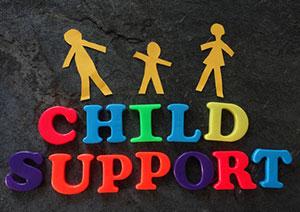630-462-9500
After Hour New Client Telephone Number 630-690-6077
1776 S. Naperville Road, Building B, Suite 202,
Wheaton, IL 60189
Recent Blog Posts
How Should I Respond to False Claims of Domestic Violence?
 The National Coalition Against Domestic Violence estimates that one in every four U.S. women and one in every seven U.S. men have experienced domestic violence. Physical abuse, psychological manipulation, financial exploitation, and other forms of abuse exist within many families. Sadly, some people choose to use false accusations of domestic violence or abuse in an attempt to influence family law cases. Whether it is a divorce, child custody dispute, or another family law matter, allegations of abuse will likely have a major impact on the outcome of the case. If you have been accused of abusing a family member, there are several actions you should take immediately.
The National Coalition Against Domestic Violence estimates that one in every four U.S. women and one in every seven U.S. men have experienced domestic violence. Physical abuse, psychological manipulation, financial exploitation, and other forms of abuse exist within many families. Sadly, some people choose to use false accusations of domestic violence or abuse in an attempt to influence family law cases. Whether it is a divorce, child custody dispute, or another family law matter, allegations of abuse will likely have a major impact on the outcome of the case. If you have been accused of abusing a family member, there are several actions you should take immediately.
Gather Evidence and Witnesses That Support Your Side of the Story
One of the first things you should do if you are accused of abuse is to obtain any evidence that can help prove that the accusations are untrue. This may include things like text messages, voicemails, emails, letters, and other correspondence. Also, start thinking of witnesses who can corroborate your side of the story during any legal proceedings. Witnesses who are willing to testify about your character can be extremely beneficial to your case.
3 Mistakes Parents Commonly Make During Illinois Custody Battles
 Disagreements about the allocation of parental responsibilities and parenting time are often some of the most contentious issues in a divorce case. When parents cannot agree on a custody arrangement, they have several options: they can try to find a resolution through mediation, collaborative law, or negotiations facilitated by their attorneys, or they may take the case to trial. If you are a parent who is involved in a child custody disagreement, you may be unsure of how to handle the situation. Although there is no perfect way to manage a child-related legal dispute, there are certain mistakes that parents should always try to avoid, including:
Disagreements about the allocation of parental responsibilities and parenting time are often some of the most contentious issues in a divorce case. When parents cannot agree on a custody arrangement, they have several options: they can try to find a resolution through mediation, collaborative law, or negotiations facilitated by their attorneys, or they may take the case to trial. If you are a parent who is involved in a child custody disagreement, you may be unsure of how to handle the situation. Although there is no perfect way to manage a child-related legal dispute, there are certain mistakes that parents should always try to avoid, including:
Putting Children in the Middle of the Conflict
Multiple studies have shown that parental discord can be harmful to children's emotional and psychological well-being. Parents should make every attempt to keep their children out of legal and personal conflicts. While it can be tempting to criticize your child's other parent, doing so in front of your child can make him or her feel like he or she has to choose sides. Experts encourage parents to keep adult conversations out of earshot of children and to never ask children to act as a messenger between parents.
What to Expect During a Contested Divorce in Illinois
 There are two types of divorce cases: contested and uncontested. An uncontested divorce is one in which the spouses are able to come to an agreement about property division, parental responsibilities, parenting time, spousal support, and any other issues that must be resolved before their marriage can be dissolved. If the spouses cannot reach an agreement about one or more of these issues, they enter into a contested divorce. Read on to learn about the typical steps involved in an Illinois contested divorce and how you can get the legal support you need during this process.
There are two types of divorce cases: contested and uncontested. An uncontested divorce is one in which the spouses are able to come to an agreement about property division, parental responsibilities, parenting time, spousal support, and any other issues that must be resolved before their marriage can be dissolved. If the spouses cannot reach an agreement about one or more of these issues, they enter into a contested divorce. Read on to learn about the typical steps involved in an Illinois contested divorce and how you can get the legal support you need during this process.
Filing a Petition for Dissolution of Marriage
The first step in the Illinois divorce process is filing a Petition for Dissolution of Marriage with your county circuit court. The person who files the divorce Petition is called the petitioner, and the other spouse is referred to as the respondent. When you file for divorce, you have a legal obligation to notify the respondent. You may do this in person, via certified mail, or through a deputy sheriff. The respondent must respond to the petition within 30 days, and he or she may file a response to the petition or a counter-petition.
What You Need to Know About Divorce After a Long-term Marriage
 Although the overall divorce rate in the United States has been declining, there is one demographic that is getting divorced more now than ever before. People over age 50 are divorcing at a rate which is double what it was 30 years ago. Some of these divorces involve couples who were married for 10, 20, or even 30+ years. Deciding to get a divorce after a long marriage can be one of the hardest choices a person ever makes. Leaving the comfort of a familiar relationship to find a happier life as a single person can be understandably intimidating. In addition, spouses who divorce after a long marriage must consider issues that other couples may not need to worry about.
Although the overall divorce rate in the United States has been declining, there is one demographic that is getting divorced more now than ever before. People over age 50 are divorcing at a rate which is double what it was 30 years ago. Some of these divorces involve couples who were married for 10, 20, or even 30+ years. Deciding to get a divorce after a long marriage can be one of the hardest choices a person ever makes. Leaving the comfort of a familiar relationship to find a happier life as a single person can be understandably intimidating. In addition, spouses who divorce after a long marriage must consider issues that other couples may not need to worry about.
Adjusting to the Change May Be Emotionally Strenuous
While any divorce is going to involve a degree of emotional and psychological stress, ending a long marriage can be especially difficult. If you and your spouse have been together for many years, adjusting to life without that person can be painful – even if you are the one who initiated the separation. Experts encourage individuals going through divorce after a long marriage to consider finding additional sources of support. This may include speaking with a counselor, joining a support group, or simply reaching out to friends and family that you trust.
Suggestions On What May Be Done If You Lose Your Job
If you have recently been laid off, furloughed or terminated from your employment and you have a child support or maintenance obligation, you may want to consider the filing of a petition to modify those payments. Section 510 of the Illinois Marriage and Dissolution of Marriage Act provides that child support and maintenance may be modified upon a showing of a substantial change in circumstances. However, the modification can only be made retroactive to the date of filing and notice.
No one is certain of the long-term ramifications of the COVID-19 pandemic. The length of a furlough, or layoff, or time between jobs may be longer than initially expected. Complying with court orders is required and regardless of the circumstances, the court can do nothing to reduce the amount that you will ultimately owe until you have a petition on file. Loss of employment under current conditions will most likely be considered a substantial change in circumstances. However, no relief can be granted unless it is asked for. If circumstances do not improve, addressing the issue early may prevent financial catastrophe later. If all improve, the petition can be withdrawn. Do the best you can but protect yourself long-term.
What Happens if an Illinois Adoption Is Contested?
 Deciding to adopt a child can be one of the most rewarding decisions a person ever makes. Unfortunately, the legal process of adopting a child can often be very complicated. Even if the adoptive parents take every step possible to help the adoption proceed smoothly, it is possible that the adoption may be contested or disputed by another party. If you are planning to adopt a child, and you are concerned that the child's biological parent or another party may contest the adoption, contact a lawyer experienced in adoption issues as soon as possible.
Deciding to adopt a child can be one of the most rewarding decisions a person ever makes. Unfortunately, the legal process of adopting a child can often be very complicated. Even if the adoptive parents take every step possible to help the adoption proceed smoothly, it is possible that the adoption may be contested or disputed by another party. If you are planning to adopt a child, and you are concerned that the child's biological parent or another party may contest the adoption, contact a lawyer experienced in adoption issues as soon as possible.
Common Issues That Lead to Contested Adoptions
There are several reasons that an adoption may be contested. In some cases, a biological parent may contest an adoption because they do not want to give up their parental rights. For example, if the child's biological mother never told the father that she had a child, it is possible that the father may not have even known about the child's existence. If a biological father can show that he is willing and able to assume parental responsibilities, it is possible that the adoption process will be terminated. However, if a father knew that he had a child but chose to remain completely uninvolved in the child's life, he may not be granted any parental rights, and the adoption may continue. A father may also lose the right to contest an adoption if he does not contact the child for more than one year or provide child support to address the child's needs. An adoption may also be contested if a biological parent disagrees with a stepparent adoption or if a birth father disagrees with a mother's decision to place an infant up for adoption.
Advantages and Disadvantages of Signing a Prenuptial Agreement
 Prenuptial agreements are legally binding documents that establish and protect spouses' property rights, and they may also address spousal maintenance and other matters. Because many of the provisions in a prenuptial agreement only become effective if a couple divorces, prenuptial agreements, or “prenups,” are somewhat controversial. However, research shows that the popularity of prenups has been rising, especially among the millennial generation. Prenuptial agreements offer a range of benefits, but they may not be right for every engaged couple.
Prenuptial agreements are legally binding documents that establish and protect spouses' property rights, and they may also address spousal maintenance and other matters. Because many of the provisions in a prenuptial agreement only become effective if a couple divorces, prenuptial agreements, or “prenups,” are somewhat controversial. However, research shows that the popularity of prenups has been rising, especially among the millennial generation. Prenuptial agreements offer a range of benefits, but they may not be right for every engaged couple.
Rights and Responsibilities Addressed by Prenuptial Agreements
A prenuptial agreement is a contract that lists each party's property and specifies the parties' property rights in the event that the marriage ends. When a couple sits down to draft a prenuptial agreement, they will need to list all of the assets and debts that they currently own. Many couples find that this inventory process is beneficial in itself because it starts the marriage off with a degree of financial transparency and honesty that is absent in many relationships.
How Do Children From a Previous Relationship Affect Child Support?
 Child support may be ordered to ensure that unmarried or divorcing parents share in the costs of raising their children. Typically, the parent with the majority of parenting time is the recipient of child support paid by the parent with less parenting time. Child support can be an essential resource for providing for children's needs, but it can also be a heavy financial burden on the paying parent. This may be especially true if the paying parent has more than one child support obligation. If you share children with your current spouse and are planning to get a divorce, you may wonder how previous child support obligations will influence any additional child support determinations.
Child support may be ordered to ensure that unmarried or divorcing parents share in the costs of raising their children. Typically, the parent with the majority of parenting time is the recipient of child support paid by the parent with less parenting time. Child support can be an essential resource for providing for children's needs, but it can also be a heavy financial burden on the paying parent. This may be especially true if the paying parent has more than one child support obligation. If you share children with your current spouse and are planning to get a divorce, you may wonder how previous child support obligations will influence any additional child support determinations.
How Much Will My Child Support Payment Be?
Along with many other family law modifications, substantial changes to the way Illinois courts calculate child support were instituted in 2017. Child support is no longer simply a percentage of the obligor, or paying parent's, income. Child support orders entered under the updated law are calculated using the Income Shares Model, which takes both parents' income and other factors into account. Child support payments are now calculated using the following steps:
3 Reasons to Consider Mediation During Your Child Custody Dispute
 When parents get divorced, determining child custody arrangements is often their top priority. It can be extremely difficult for parents who are used to seeing their children every day to transition to a parenting time schedule in which they only see their children part of the time. In Illinois child custody disputes, parents will need to make decisions about the “allocation of parental responsibilities” as well as the amount of time the child spends with each parent, called “parenting time.” Disagreements about these issues can quickly become antagonistic and unproductive. Mediation is one option for parents who are struggling to reach an agreement about child custody concerns. This method of alternative dispute resolution may help you and your child's other parent reach an agreement about child custody and other child-related disputes. There are a number of good reasons to consider mediation, including:
When parents get divorced, determining child custody arrangements is often their top priority. It can be extremely difficult for parents who are used to seeing their children every day to transition to a parenting time schedule in which they only see their children part of the time. In Illinois child custody disputes, parents will need to make decisions about the “allocation of parental responsibilities” as well as the amount of time the child spends with each parent, called “parenting time.” Disagreements about these issues can quickly become antagonistic and unproductive. Mediation is one option for parents who are struggling to reach an agreement about child custody concerns. This method of alternative dispute resolution may help you and your child's other parent reach an agreement about child custody and other child-related disputes. There are a number of good reasons to consider mediation, including:
How Does Job Loss Affect Divorce?
 Concerns over the coronavirus have caused some businesses to close their doors. Unfortunately, this means that many people are now out of work. Some of these individuals are only temporarily laid off, while others may need to find new employment. Whether it is due to a layoff or termination, losing your job has the potential to dramatically influence divorce proceedings. Although divorce is typically thought of as the end of a romantic relationship, it is also the end of a financial relationship. Losing your main source of income will likely impact issues such as property division, child support, child custody, spousal maintenance, and other aspects of your divorce.
Concerns over the coronavirus have caused some businesses to close their doors. Unfortunately, this means that many people are now out of work. Some of these individuals are only temporarily laid off, while others may need to find new employment. Whether it is due to a layoff or termination, losing your job has the potential to dramatically influence divorce proceedings. Although divorce is typically thought of as the end of a romantic relationship, it is also the end of a financial relationship. Losing your main source of income will likely impact issues such as property division, child support, child custody, spousal maintenance, and other aspects of your divorce.
The Reason for the Job Loss Matters
When deciding on financial matters in a divorce case, a judge will consider both spouses' financial circumstances. This includes the spouses' income, assets, employability, and other factors. If either spouse has recently lost his or her job, the judge will want to know about the circumstances that led to the job loss. A judge is much more likely to be sympathetic when the job loss was the result of widespread layoffs or a person was otherwise not at fault for losing his or her job. However, if a spouse has lost his or her job because he or she quit or was fired for misconduct, the judge will be much less sympathetic.




















